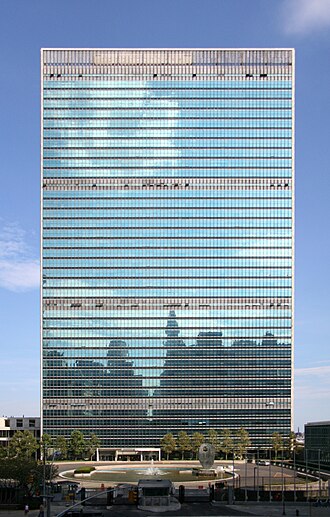Secretary-General of the United Nations
Secretary-General of the United Nations is a position that serves as the chief administrative officer of the United Nations (UN), a global organization established to promote and facilitate cooperation in international law, international security, economic development, social progress, human rights, and the achievement of world peace. The Secretary-General acts as the de facto spokesperson and leader of the UN.
Role and Functions
The Secretary-General's responsibilities include helping resolve international disputes, administering peacekeeping operations, organizing international conferences, gathering information on the implementation of Security Council decisions, and consulting with world leaders to foster international cooperation. The Secretary-General also provides annual reports to the UN General Assembly on the work of the UN.
Appointment
The Secretary-General is appointed by the UN General Assembly upon the recommendation of the UN Security Council. While there is no specific term limit, the office is traditionally held for a five-year term, with the possibility of re-election. The selection process is notably secretive and subject to the veto power of any of the five permanent members of the Security Council.
History
The office of Secretary-General was established with the founding of the United Nations in 1945. The first Secretary-General was Trygve Lie of Norway, who served from 1946 to 1952. Since then, there have been nine Secretaries-General from various countries, each bringing their own perspective and leadership style to the role.
Notable Secretaries-General
- Trygve Lie (Norway): 1946–1952 - Dag Hammarskjöld (Sweden): 1953–1961, awarded the Nobel Peace Prize posthumously. - U Thant (Myanmar): 1961–1971, known for his role in defusing the Cuban Missile Crisis. - Kurt Waldheim (Austria): 1972–1981 - Javier Pérez de Cuéllar (Peru): 1982–1991, known for his peace-making efforts. - Boutros Boutros-Ghali (Egypt): 1992–1996 - Kofi Annan (Ghana): 1997–2006, awarded the Nobel Peace Prize in 2001. - Ban Ki-moon (South Korea): 2007–2016 - António Guterres (Portugal): 2017–present, known for his focus on climate change and the COVID-19 pandemic.
Challenges
The Secretary-General faces numerous challenges, including managing the complex bureaucracy of the UN, addressing global crises, and navigating the political tensions between member states. The effectiveness of the Secretary-General often depends on their ability to persuade and influence global leaders and the international community.
Legacy
The legacy of the Secretary-General is defined by their ability to promote peace, security, and cooperation among nations. Each Secretary-General has left a unique mark on the history of the UN, contributing to its mission of maintaining international peace and security, developing friendly relations among nations, and promoting social progress, better living standards, and human rights.
This article is a United Nations–related stub. You can help WikiMD by expanding it!
Transform your life with W8MD's budget GLP-1 injections from $125.
W8MD offers a medical weight loss program to lose weight in Philadelphia. Our physician-supervised medical weight loss provides:
- Most insurances accepted or discounted self-pay rates. We will obtain insurance prior authorizations if needed.
- Generic GLP1 weight loss injections from $125 for the starting dose.
- Also offer prescription weight loss medications including Phentermine, Qsymia, Diethylpropion, Contrave etc.
NYC weight loss doctor appointments
Start your NYC weight loss journey today at our NYC medical weight loss and Philadelphia medical weight loss clinics.
- Call 718-946-5500 to lose weight in NYC or for medical weight loss in Philadelphia 215-676-2334.
- Tags:NYC medical weight loss, Philadelphia lose weight Zepbound NYC, Budget GLP1 weight loss injections, Wegovy Philadelphia, Wegovy NYC, Philadelphia medical weight loss, Brookly weight loss and Wegovy NYC
|
WikiMD's Wellness Encyclopedia |
| Let Food Be Thy Medicine Medicine Thy Food - Hippocrates |
Medical Disclaimer: WikiMD is not a substitute for professional medical advice. The information on WikiMD is provided as an information resource only, may be incorrect, outdated or misleading, and is not to be used or relied on for any diagnostic or treatment purposes. Please consult your health care provider before making any healthcare decisions or for guidance about a specific medical condition. WikiMD expressly disclaims responsibility, and shall have no liability, for any damages, loss, injury, or liability whatsoever suffered as a result of your reliance on the information contained in this site. By visiting this site you agree to the foregoing terms and conditions, which may from time to time be changed or supplemented by WikiMD. If you do not agree to the foregoing terms and conditions, you should not enter or use this site. See full disclaimer.
Credits:Most images are courtesy of Wikimedia commons, and templates, categories Wikipedia, licensed under CC BY SA or similar.
Contributors: Prab R. Tumpati, MD






